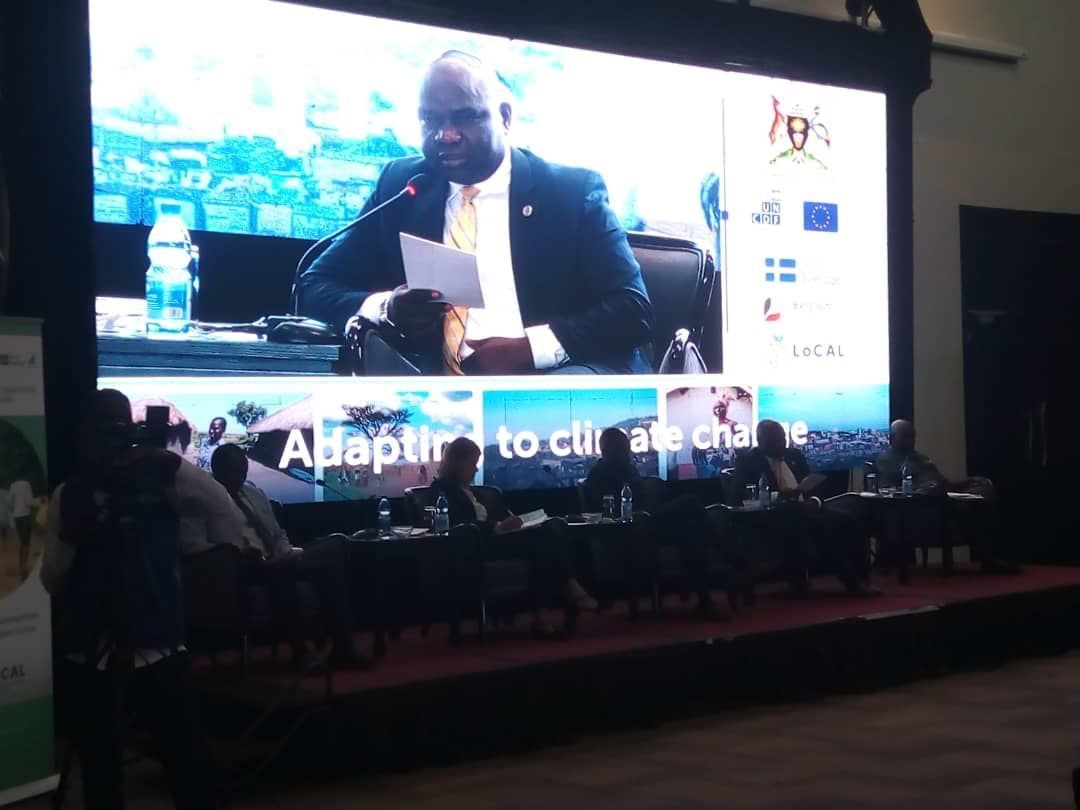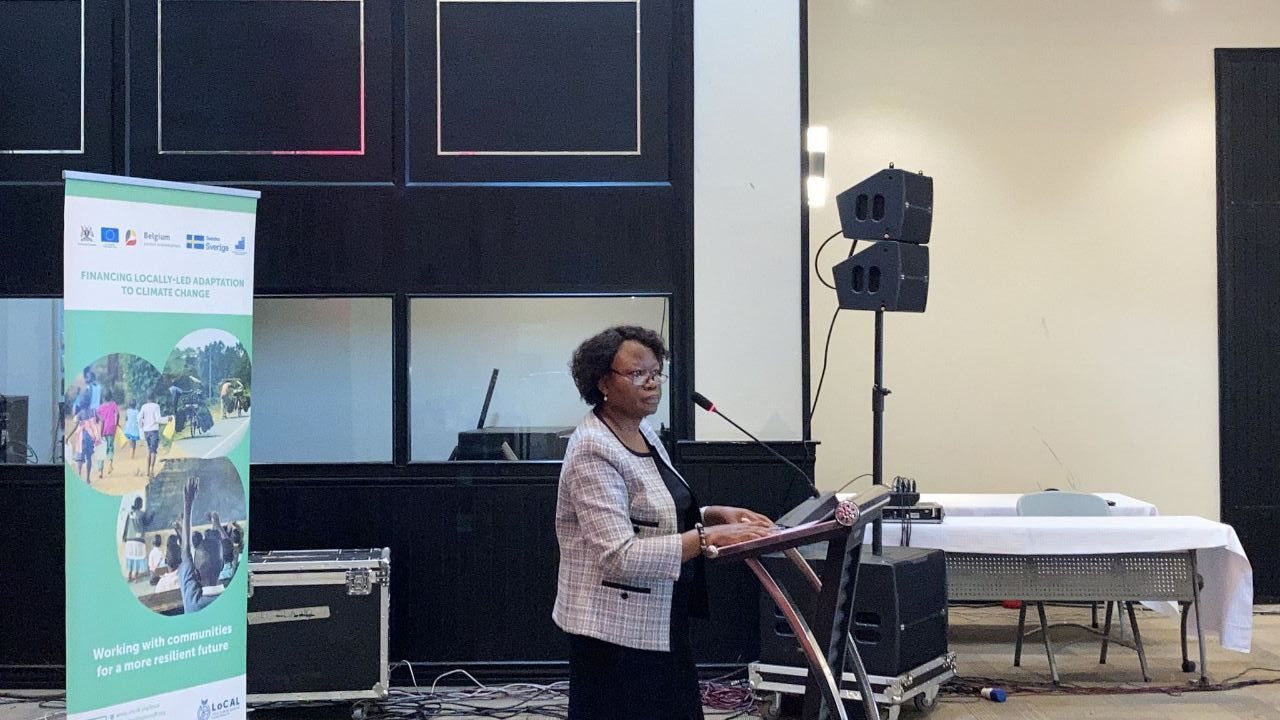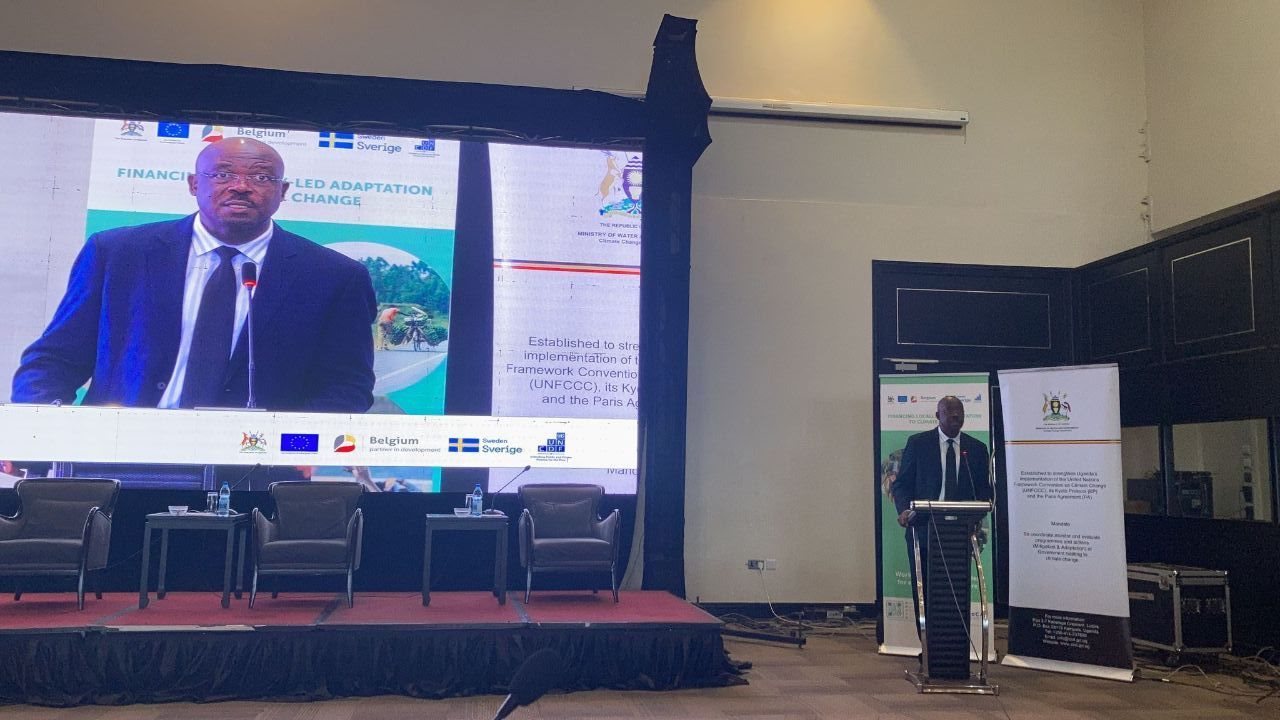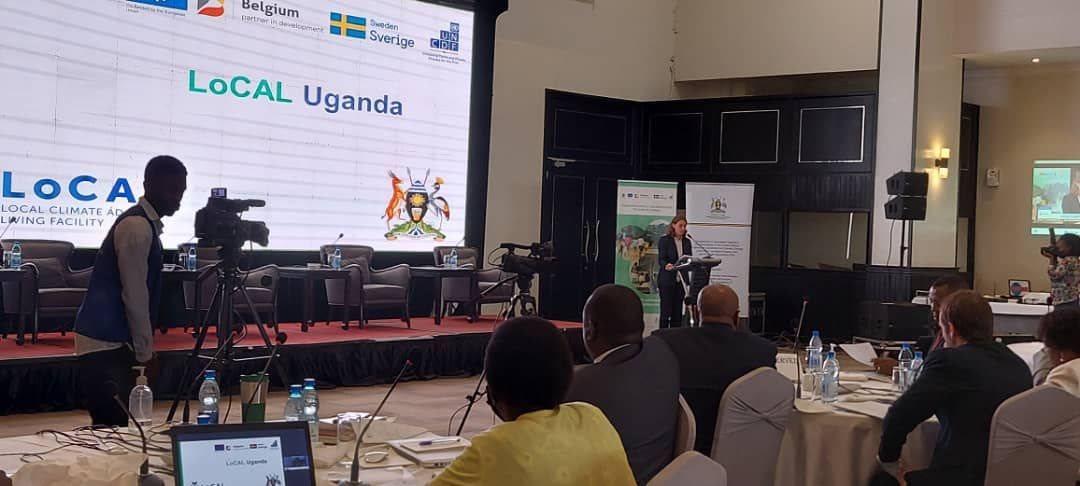Uganda prioritises adaptation to climate change with launch of the Local Climate Adaptive Living (LoCAL) Facility
Tags
The Local Climate Adaptive Living (LoCAL) Facility launched in four districts in Uganda today. Ministers and partners attended the event in Kampala, which marks a significant step towards increasing financing, awareness and capacity building to drive local level adaptation to the impacts of climate change.

LoCAL supports local governments integrate climate change adaptation into their development plans and budgets, through a participatory and gender-responsive manner, with pilots to begin in Kasese, Nwoya, Nebbi and Zombo districts. The LoCAL facility is also expected channel increased climate finance for climate-smart and resilient investments, working with communities at the local Level.
Representatives of the key government ministries implementing the LoCAL Facility gathered at Mestil Hotel in the capital Kampala to welcome the launch, made possible with support from Belgium, the European Union, Sweden and the UN Capital Development Fund.
“Globally we need to accelerate adaptation financing and The Local Climate Adaptive Living (LoCAL) Facility can support us in achieving that,” said Hon. Sam Cheptoris, Minister for Water and Environment. “Uganda’s economy and livelihood of her people are highly dependent on natural resources, which are prone to climate change impacts. The country experiences increased frequency and severity of extreme weather events manifested in more erratic rainfalls and prolonged dry seasons due to climate variability and change,” he added.
Uganda is highly vulnerable to the impacts of climate change with a high degree of exposure coupled with low adaptive capacity. According to the Notre Dame Global Adaptation Initiative (ND-GAIN 2021), Uganda is ranked as the 10th most vulnerable country to the impacts of climate change and 35th least readying terms of preparedness for climate change effects. Extreme weather events are increasingly frequent and severe across much of the Africa region, including in Uganda. In 2019, tens of thousands of Ugandans were displaced by floods and landslides, while a 2020 locust swarm destroyed crops and livelihoods.
LoCAL supports the implementation of Uganda’s updated Nationally Determined Contributions (NDC) at subnational level, in line with the National Climate Change Act of 2021. This support reinforces Uganda’s commitment to the United Nations Framework Convention on Climate Change (UNFCCC), the Kyoto Protocol, and the Paris Agreement, that call for country specific climate change response measures.
LoCAL is an internationally recognised mechanism for channelling climate finance to the local level, using country systems and is already being implemented in countries 32 across Africa, Asia, the Pacific, and Caribbean. LoCAL-implementing countries are some of the world’s most climate-impacted countries in the world and have limited resources to respond to the crisis. Over 50% of LoCAL countries are classed as Least Developed Countries (LDCs).

Margaret Athieno Mwebesa, Commissioner, Climate Change, Ministry of Water, Environment, Directorate of Water Resources Management, opens an orientation event introducing interested parties to UNCDF LoCAL Uganda which launches today in Uganda.
Over 12.5 million people have benefitted from LoCAL adaptation actions to date, with the potential to reach 600 million people with nation-wide implementation in existing LoCAL countries. As of end 2021, with commitments from Belgium for LoCAL roll-out in Uganda, over US$ 125 million has been mobilised to support locally-led climate adaptation actions.

“By increasing finance for adaptation investments at local level, this mechanism will be key to build climate resilience in the country, taking into account the specificities of each supported district,” said Koen Van Acoleyen Deputy Head of Mission at the Embassy of Belgium that has decided to support the LoCAL mechanism with some 6.5 million euros in funds, or almost US$ 7 million. “Belgium has clearly heard the call from Least Developed Countries and Small Island Developing States that gaining access to climate finance still comes with its challenges and we know that we have to improve our agility in action and responsiveness to local capacities and needs. We believe that the LoCAL mechanism is part of the solution.”
LoCAL-Uganda was originally designed and developed with support from the European Union’s GCCA+, with technical assistance from UNCDF; and through dialogues between UNCDF, the Government of Uganda (represented by the Ministry of Local Government, the Ministry of Finance, Planning and Economic Development and the Ministry of Water and Environment) and bilateral partners (EU Delegation to Uganda, the Governments of Belgium and Sweden).
The Government of Sweden funded a successful pilot of LoCAL, paving the way for additional funding from Belgium of just over US $6.5 million to fund LoCAL- Uganda for three cycles of Performance Based Climate Resilience Grants under Phase I and one cycle under a bridging phase (Year 4) as the country transitions to Phase II. The Government of Uganda committed co- financing of approximately US $1 million via its Ministry of Local Governments and Finance.
“We are pleased to advance cooperation with the Government of Uganda towards realising national ambitions to adapt to climate change impacts and deliver increased climate resilience,” said Sophie De Coninck, Global Manager, LoCAL Facility. “We look forward to increased cooperation and results that have a meaningful impact on the lives of Ugandan people and local communities.”
For more information:

or click this link to connect with us
THANKS TO:

